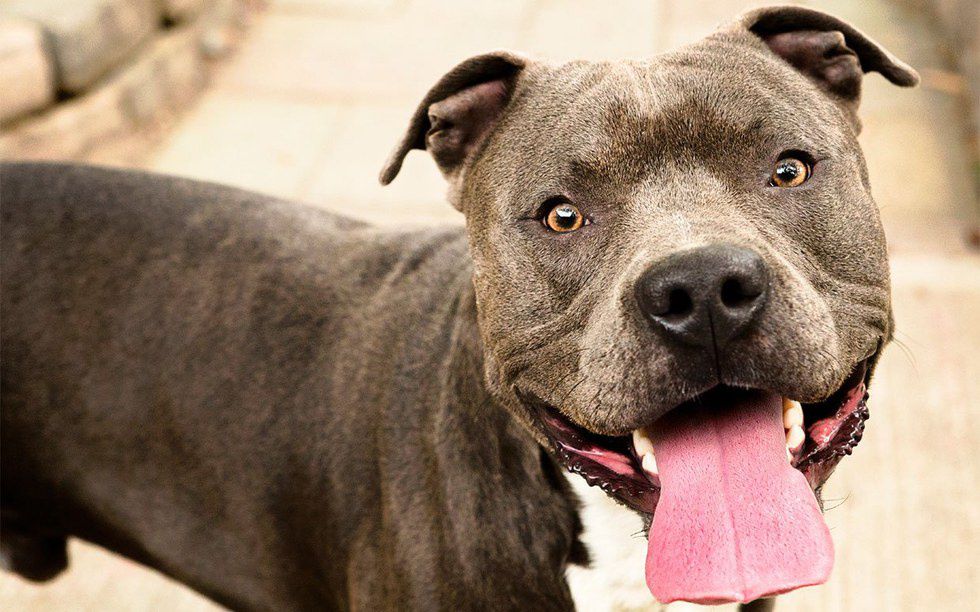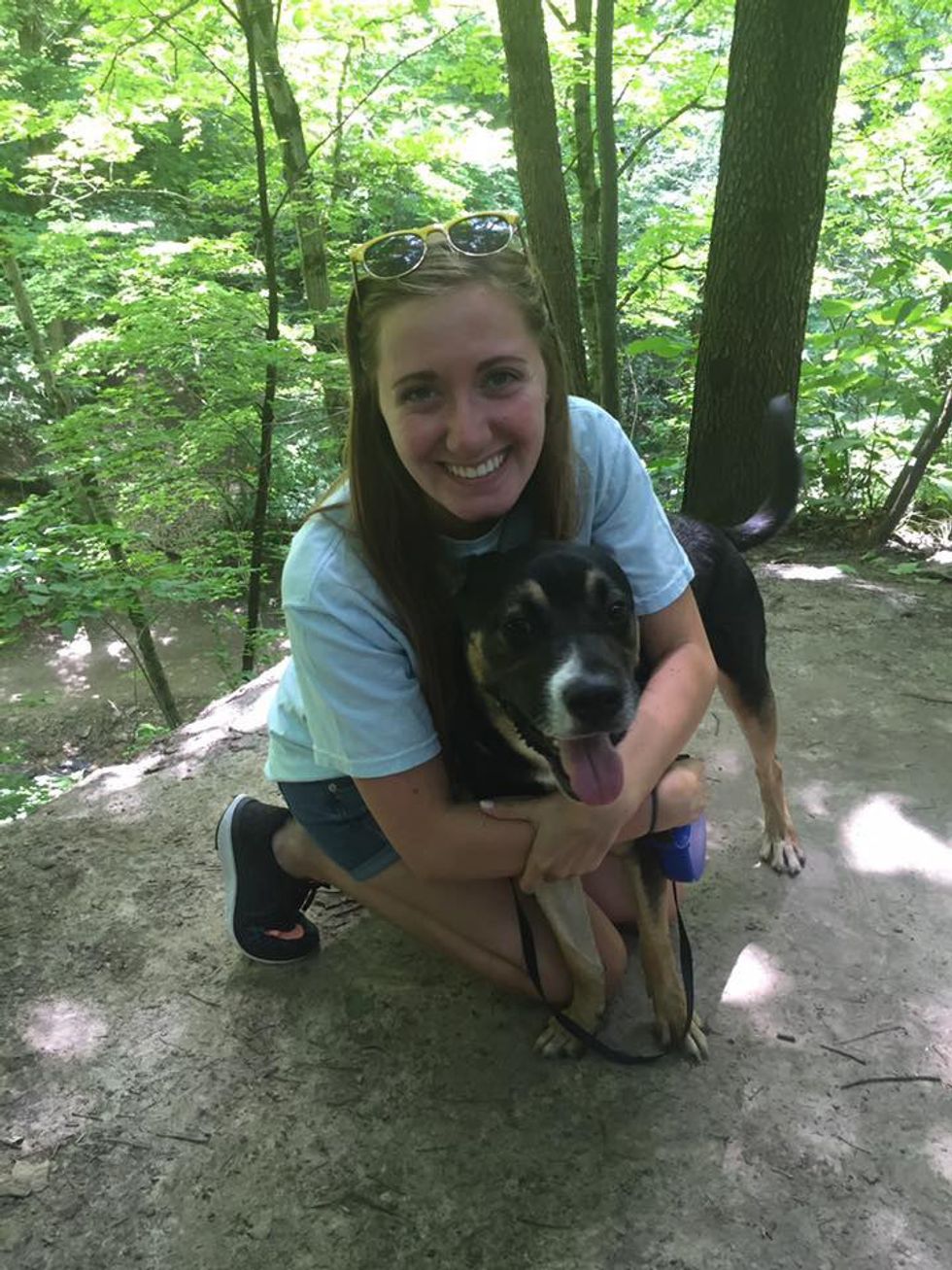The Facts
Two weeks ago, regulations were approved in Montreal, Canada seeking to ban the adoption or purchase of any dog labeled as a "pit bull." Those who already owned these types of dogs before the regulation are now forced to undergo background checks to search for criminal activity, pay higher fees for their animal, and keep a muzzle on the dog whenever they leave the house (even in their own fenced-in backyard). The desire for this law to be put in place was sparked by the fatal dog attack of a 55-year-old woman that occurred in Montreal this past June.
According to the Montreal Gazette, it will be illegal to own a pit bull-type dog or any dog resembling a pit bull.
The Bull
OK. Oh man. OK. This legislation has me angry for a number of reasons. I have worked at a veterinary clinic for five and a half years. I have seen the good, the bad, and the ugly of dogs. Walk into any veterinary clinic and ask the employees there which dogs they most fear in appointments. Nine times out of 10, they will tell you it's the chihuahuas, the shih tzus, and the toy poodles that need to be muzzled and leave us fearing for our fingers. This is not to say that these small breeds are any more dangerous than others (which is what Montreal's legislation is doing), but just to point out that all types of dogs can show fear and aggression. Certain dog breeds are not "predisposed" to aggressive behavior. The way a domesticated animal acts is the result of the owner. Pet owners must be equipped with the knowledge and tools necessary to train their animal.
My personal ranting and animal-loving bias aside, let's take a look at some of the other flaws in Montreal's legislation:
"Pit Bull-type dogs"
According to the bylaws listed by the Huffington Post, this includes American Staffordshire terriers, Staffordshire bull terriers, and American pit bull terriers, or any dogs mixed with those breeds or that bear similar physical characteristics. Rene Cadieux, a lawyer for the city of Montreal, recognizes that this may be confusing for some citizens in determining what exactly a "pit bull-type dog" is. He gives the comforting words: "If it looks like a duck, walks like a duck, quacks like a duck, it's gotta be a duck."
Oops. So we see that not only is Montreal banning pit bulls, which is unjust on its own, but any type of dog that may look like a pit bull. The New York Times categorizes pit bulls as "any mixed-breed dog with a blocky head and muscular build."
Interesting, interesting. Oddly enough, American Staffordshire terriers, Staffordshire bull terriers, and American pit bull terriers are not the only canines with squarish heads and a muscular build. So, if the dog you adopt or rescue happens to have any amount of boxer, bullmastiff, bulldog, dogue de bordeaux, great dane, mastiff, rottweiler, St. Bernard or neopolitan mastiff in it's DNA, you're probably out of luck.
The law's basis
This whole legislation was brought about because of a 55-year-old woman named Christiane Vadnais who was the victim of a fatal dog attack this past June in Pointe-aux-Trembles, a part of the city of Montreal, Canada. Police arrived on-site after being called by a neighbor of Christiane who had seen her being attacked in her backyard. Officers shot and killed the dog after arriving so that paramedics could get to Christiane's body.
Although police arrived on the scene and described the dog as a pit bull, CBC News reported in July that the woman was mauled by a boxer according to the Humane Society. Later, in an article by the New York Times, it was said that the dog that attacked Christiane was actually registered as a bulldog.
Unless there was a veterinarian on the scene, it may be impossible to know the exact breed of the dog (and maybe not even then, if it was a mixed breed). Either way, it doesn't matter. Some very quick and irrational decisions were made based off of this one dog attack. Sterling Downey, a Canadian councilman in opposition to the new law, appropriately called it "panic policy-making". People need to learn that one incident does not call for prejudice against an entire group or population (this need not apply to canines alone). An entire breed should not be banned, pit bull, bulldog, or otherwise, because of one dog attack.
This doesn't work
This type of legislation has actually been proven not to work. In 2005 Ontario passed a similar law and the number of hospitalizations due to dog bites jumped 45 percent. Alanna Devine, the director of animal advocacy for the Montreal Society for the Prevention of Cruelty to Animals (SPCA), stated that she is worried for the lives of shelter dogs. SPCA shelters take in roughly 4,000 animals a year. Because of this law, any dog that has a square head and a muscular body will inevitably be left alone in a shelter until it has to be euthanized to make space for new animals. It has also been pointed out in countless articles that identifying a dog as a "pit bull-type" based on physical appearance alone is going to be nearly impossible.
Although the Montreal City Council voted this law 37 to 23 in favor of the ban on pit bulls, as of last Wednesday, Judge Louis Gouin suspended the regulation indefinitely. He agrees that the law's terms are too vague and elastic and should be clarified. As much of a victory as this may seem, the fight is far from over. Some words will be changed, and before you know it this case will be back in the courts.
How can you help?
The easiest and most direct way to help would be by signing this petition. It is addressed to the mayor of Montreal, Canada and states that if the ban is to pass, you will not help contribute in any way, shape, or form to the revenue for the city of Montreal.
If you're feeling rather generous, you can donate to the SPCA of Montreal. This will help buy them more time in the fight to save these dogs.
If you just happen to be in the market for a new dog, consider adopting a pit bull or any mix from a rescue. Dog bans are not just an issue in Canada; it is all too common for housing units and even entire neighborhoods in the United States to ban "bully breeds" (rottweiler, pitbull, german shepherd). Getting these types of dogs out of shelters and into good homes can help not only make their lives better but will inevitably enrich yours as well.
























